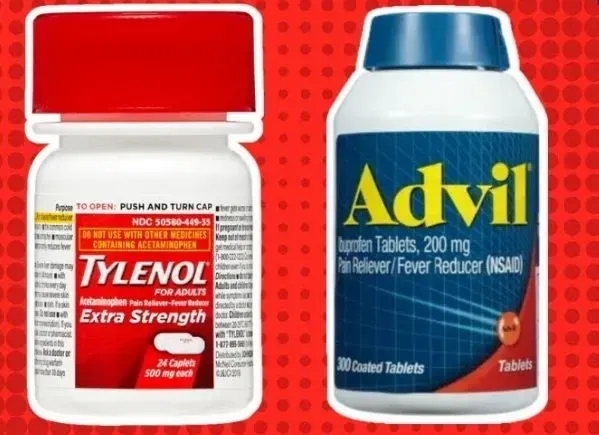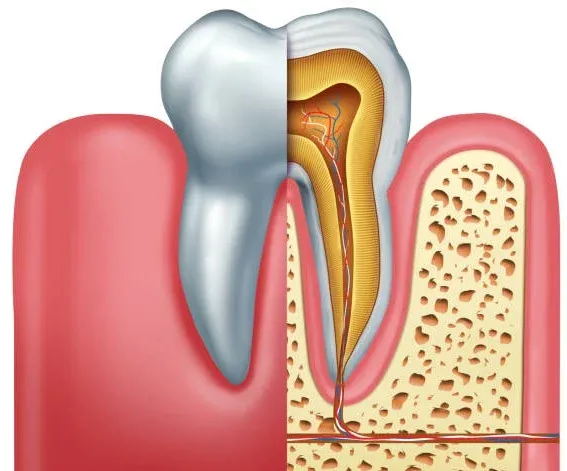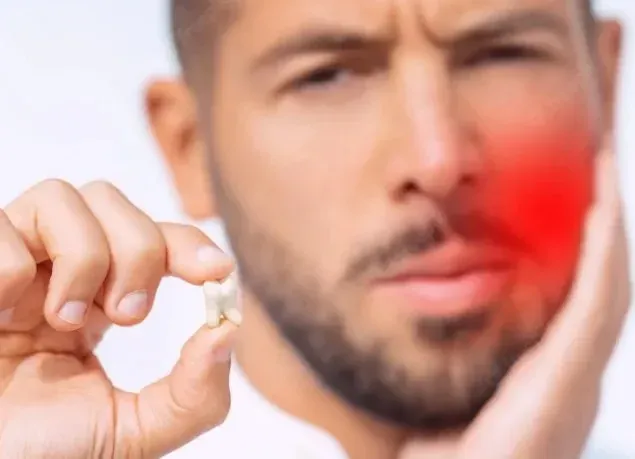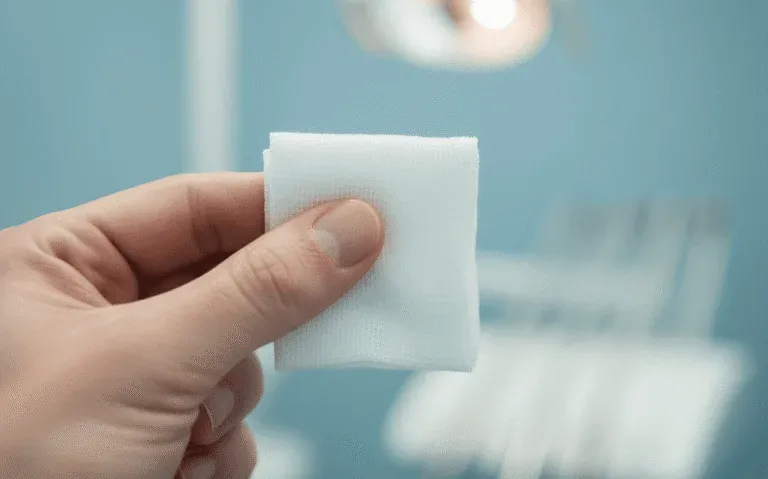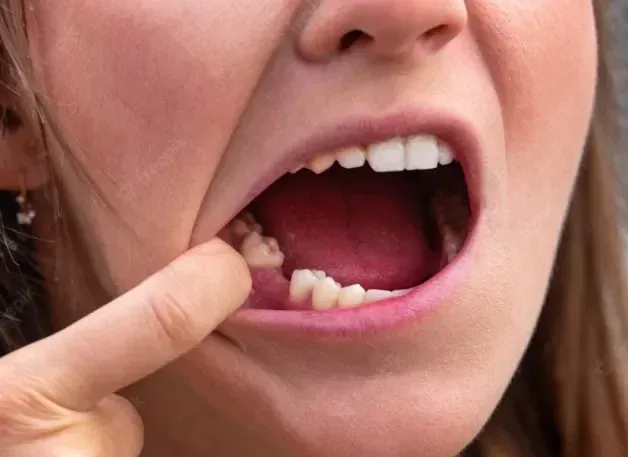How to Stop Sensitive Teeth Pain Immediately: 2026 Expert Guide
If you’ve ever winced from sipping cold water or felt a sharp jolt while eating ice…
If you’ve ever winced from sipping cold water or felt a sharp jolt while eating ice cream, you know how disruptive tooth sensitivity can be. The good news? You don’t have to suffer in silence. In this comprehensive 2026 guide, we’ll walk you through proven methods to stop sensitive teeth pain immediately, explore the root causes, and help you find lasting relief.
Your oral health deserves attention, and understanding how to manage tooth sensitivity is the first step toward a pain-free smile. Whether you’re dealing with sudden sensitivity or chronic discomfort, we’ve got you covered with both professional solutions and effective home remedies.
How to Stop Sensitive Teeth Pain Immediately
When sensitivity strikes, you need fast relief. Here are the most effective immediate solutions available in 2026:
Over-the-Counter Desensitizing Toothpaste
Desensitizing toothpastes contain compounds like potassium nitrate or stannous fluoride that block pain signals from reaching the nerve of your tooth. For best results, apply a small amount directly to the sensitive area and leave it on for a few minutes before rinsing. Use consistently for at least two weeks to see maximum benefit.
Why it helps: Clinically proven to build a protective layer over vulnerable areas of your teeth, providing lasting relief from sensitivity.
Pain Relief Medication
Non-steroidal anti-inflammatory drugs (NSAIDs) like ibuprofen can provide quick relief from tooth sensitivity pain. Acetaminophen is another effective option. Always follow the dosage instructions on the label, and if you’re experiencing extreme tooth pain that prevents sleep, consult your dentist immediately.
Sensitivity Relief Gels
Topical gels containing benzocaine or other numbing agents can provide immediate, localized relief. Apply directly to the affected tooth or gum area using a clean finger or cotton swab. These products work within minutes and are perfect for emergency situations.
Warm Salt Water Rinse
Mix one teaspoon of salt in a cup of warm water and swish it around your mouth for 30 seconds. This natural antiseptic solution reduces inflammation and temporarily soothes nerve endings. Repeat two to three times daily for ongoing relief.
Temperature Management
Avoid extremely hot or cold foods and beverages when dealing with sensitivity. Stick to room temperature or lukewarm options until the sensitivity subsides. This simple adjustment can prevent pain triggers throughout your day.
Professional Dental Consultation
If sensitivity persists or worsens, schedule an appointment with your dentist. They can identify underlying issues like cavities, gum recession, or enamel erosion and recommend targeted treatments such as fluoride varnishes, dental bonding, or in severe cases, root canal therapy.
Important Note: While these methods provide temporary relief, they don’t address the underlying cause of tooth sensitivity. Professional evaluation is essential for long-term solutions.
Effective Home Remedies for Sensitive Teeth
Looking for natural ways to manage tooth sensitivity? These time-tested home remedies can complement your dental care routine:
Clove Oil
Clove oil contains eugenol, a natural anesthetic and anti-inflammatory compound. Soak a cotton ball in clove oil and apply it directly to the sensitive tooth or gum area. Hold it in place for several minutes. The numbing effect typically begins within 5-10 minutes.
Why it helps: Natural eugenol content provides fast-acting pain relief and has been used in dentistry for generations.
Garlic
Garlic possesses natural antibacterial and analgesic properties. Crush a fresh garlic clove to release allicin, then apply it directly to the affected area for 2-3 minutes. Alternatively, chew a small piece of raw garlic. While the taste may be strong, the pain relief can be significant.
Turmeric Paste
Turmeric’s anti-inflammatory compound, curcumin, can help reduce tooth pain. Mix a pinch of turmeric powder with a few drops of water to create a thick paste. Apply this to the sensitive tooth and surrounding gum area, leave for 5 minutes, then rinse thoroughly.
Hydrogen Peroxide Rinse
A diluted hydrogen peroxide rinse acts as a mild antiseptic and can reduce inflammation. Mix equal parts 3% hydrogen peroxide and water, swish for 30 seconds, then spit it out (never swallow). Use this rinse twice daily, but not for extended periods without consulting your dentist.
Black Pepper and Clove Powder
Combine equal parts ground black pepper and clove powder with a drop of water to form a paste. Apply to the sensitive area for immediate relief. Both ingredients have natural analgesic properties that work synergistically.
Green Tea Rinse
Green tea contains antioxidants and anti-inflammatory compounds. Brew a cup of unsweetened green tea, let it cool to room temperature, and use it as a mouth rinse twice daily. This can help strengthen teeth and reduce sensitivity over time.
Why Are My Teeth Suddenly Sensitive?
Sudden tooth sensitivity can be alarming, but understanding the causes helps you address the problem effectively. Here are the most common culprits in 2026:
Enamel Erosion
Your tooth enamel is the hardest substance in your body, but it’s not indestructible. Acidic foods, aggressive brushing, and acid reflux can gradually wear it down, exposing the sensitive dentin layer beneath. Once enamel is gone, it cannot regenerate naturally.
Gum Recession
When gums recede, they expose the tooth roots, which lack the protective enamel covering. This makes them extremely sensitive to temperature changes and touch. Gum recession can result from periodontal disease, aggressive brushing, or simply aging.
Tooth Decay and Cavities
Cavities create openings in your teeth that expose the inner layers to external stimuli. If you’re experiencing sensitivity along with visible holes or dark spots on your teeth, you may have tooth decay at the gum line that requires immediate attention.
Cracked or Fractured Teeth
Even tiny cracks can expose the tooth’s nerve, causing sharp pain when you bite down or consume hot or cold items. If you suspect a crack, avoid chewing on that side and see your dentist promptly. Learn more about managing a cracked tooth while waiting for your appointment.
Recent Dental Procedures
It’s normal to experience temporary sensitivity after teeth whitening, fillings, crowns, or deep cleanings. This usually subsides within a few days to two weeks. However, if pain persists or intensifies, contact your dentist.
Teeth Grinding (Bruxism)
Grinding or clenching your teeth, especially during sleep, wears down enamel and can cause widespread sensitivity. Many people don’t realize they grind their teeth until their dentist notices the signs or a partner mentions it.
Why it helps: Protects your teeth from grinding damage while you sleep, preventing further enamel erosion and sensitivity.
Sinus Problems
Upper tooth sensitivity can sometimes stem from sinus congestion or infection. The roots of your upper teeth sit close to your sinus cavities, and inflammation can create pressure that mimics tooth pain. This type of sensitivity typically affects multiple teeth on one side and improves when the sinus issue resolves.
Hormonal Changes
Pregnancy, menopause, and menstruation can cause temporary increases in tooth sensitivity due to hormonal fluctuations that affect gum tissue and blood flow to the teeth.
Acidic Diet
Regular consumption of acidic foods and beverages (citrus fruits, soda, wine, sports drinks) can erode enamel over time. Even healthy choices like lemon water can contribute to sensitivity if consumed excessively.
Recognizing Sensitive Teeth Symptoms
Identifying the specific symptoms of tooth sensitivity helps you communicate effectively with your dentist and find appropriate treatment. Watch for these common signs:
- Sharp, sudden pain when consuming hot, cold, sweet, or acidic foods and drinks
- Discomfort during brushing or flossing, especially along the gum line
- Pain when breathing cold air through your mouth
- Lingering ache after the trigger is removed (usually lasts a few seconds to minutes)
- Sensitivity in one specific tooth or multiple teeth
- Tenderness when biting down or applying pressure to certain teeth
- Tingling or unusual sensations in the teeth or gums
- Increased awareness of temperature changes in your mouth
Important: These symptoms can also indicate other dental problems like cavities, abscesses, or gum disease. If you experience persistent pain, swelling, or sensitivity that doesn’t improve with home care, schedule a dental examination. In some cases, what feels like sensitivity might actually be pressure-related tooth pain requiring different treatment.
Long-Term Prevention Strategies
Preventing tooth sensitivity is far easier than treating it. Incorporate these habits into your daily routine:
Use Proper Brushing Technique
Brush gently with a soft-bristled toothbrush using circular motions. Aggressive horizontal scrubbing damages enamel and irritates gums. Hold your toothbrush at a 45-degree angle to the gum line and let the bristles do the work.
Choose the Right Toothpaste
Avoid whitening toothpastes if you have sensitivity, as they can be abrasive. Instead, opt for formulas specifically designed for sensitive teeth. Use fluoride toothpaste to strengthen enamel.
Limit Acidic Foods and Drinks
When you do consume acidic items, use a straw to minimize contact with teeth, and wait at least 30 minutes before brushing (brushing immediately after acid exposure can damage softened enamel).
Don’t Skip Regular Dental Checkups
Professional cleanings and examinations every six months help catch problems early. Your dentist can apply fluoride treatments or dental sealants to protect vulnerable areas.
Address Teeth Grinding
If you grind your teeth, talk to your dentist about a custom night guard. This protective device cushions your teeth and prevents enamel wear.
Maintain Healthy Gums
Floss daily and consider using an antimicrobial mouthwash to prevent gum disease, which leads to recession and sensitivity.
When to See a Dentist
While home remedies and over-the-counter products can provide relief, certain situations require professional intervention:
- Sensitivity lasting more than two weeks despite home treatment
- Severe pain that interferes with eating, drinking, or sleeping
- Visible damage to teeth (chips, cracks, discoloration)
- Swelling, bleeding, or pus around the gums
- Sensitivity that suddenly worsens or spreads to multiple teeth
- Pain accompanied by fever or facial swelling
Your dentist can offer advanced treatments such as fluoride varnishes, dental bonding to cover exposed roots, gum grafts for severe recession, or root canal therapy if the tooth’s nerve is compromised.
Final Thoughts
Tooth sensitivity doesn’t have to control your life. By understanding the causes, implementing immediate relief strategies, and adopting preventive habits, you can enjoy your favorite foods and drinks without wincing in pain. Remember that while temporary solutions provide comfort, addressing the underlying cause with professional help ensures long-term oral health.
If you’re struggling with persistent sensitivity in 2026, don’t wait—reach out to your dentist today. Your smile deserves the best care possible, and relief is closer than you think.



